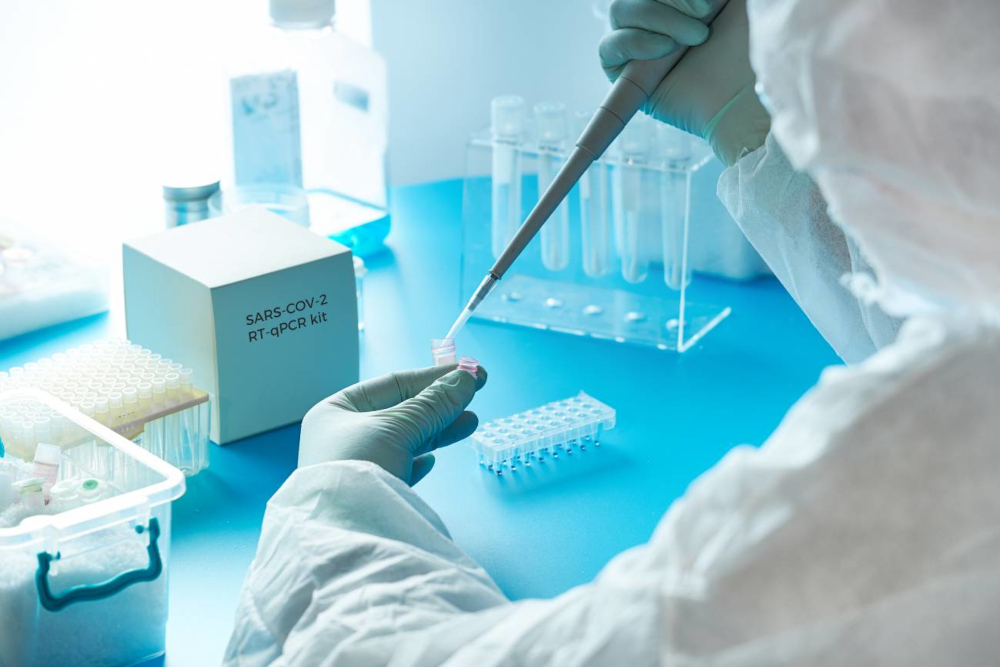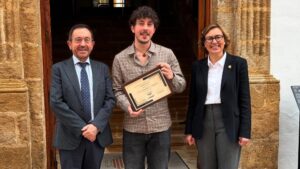ProVaVac study concludes that 95% of Valencian population has antibodies against SARS-CoV-2
Data obtained in another ProVaVac study indicate that 1 in 5 Valencians who have suffered from the disease will develop after effects derived from COVID-19.

Photo Credit: Generalitat Valenciana
Thursday 14th April 2022 – Mike Smith
Source: press release – Generalitat Valenciana
The General Director of Analysis and Public Policies, Ana Berenguer, has released the results of two investigations by the Valencian COVID-19 Vaccine Research Program (ProVaVac) which have concluded that 95% of the Valencian population has antibodies against SARS-CoV-2 and that 41% have been infected with the virus.
Berenguer explained that the objectives of these studies, although not yet published in scientific journals, are to strengthen the knowledge of the protection against COVID-19 offered by vaccines and “make the best health care decisions for citizens with sequelae due to the virus“.
The first of the investigations is a seroprevalence study carried out on 1,000 citizens of the Comunidad Valenciana belonging to different age groups and resident in the three provinces of the autonomous region which was carried out in March 2022. It is the first to be carried out in Spain after the ENE-COVID, a national study promoted by the Instituto Carlos III and completed at the start of the pandemic.
In this regard, Berenguer explained that the findings of this “pioneering ProVaVac study may be useful for informing about booster anti-COVID-19 vaccination policies and predicting the course of the pandemic in our region in the near future“.
Persistence of Symptoms
In the second of the studies, a follow-up of around 90,000 people was carried out to measure the problem of the persistence of symptoms or the appearance of new symptoms after having suffered from COVID-19. The data obtained indicate that at least 1 in 5 Valencians who have been infected by the virus suffer or will suffer sequelae – which is the after effects of a disease – of variable severity and duration, especially of a neurological nature, of the respiratory system and skin alterations.
In relation to these results, Berenger explained that this forecast of the number of citizens with consequences “leads us to continue delving into the dimension of the problem for the Generalitat Valenciana within the framework of collaboration with research groups ProVaVac“.
Along these lines, she pointed out that Artificial Intelligence analysis of uncoded diagnoses are being carried out, “in other words, extracting relevant patient information from texts written by doctors during patient consultations, with the aim to better understand the duration of the aftermath“.
International Recognition
It should be noted that three studies promoted by ProVaVac have been published in prestigious international scientific journals in the field of infectious diseases.
On the one hand, it is about the study of the immune response to the third dose of the vaccine against COVID-19 in nursing homes in the Comunidad Valenciana, published in the prestigious international journal on infectious diseases “Clinical Infectious Diseases” (LINK).
Likewise, the results related to the “immunogenicity” of this vaccine, 3 and 7 months after the second dose, have been published in scientific journals, collected in “Clinical Microbiology and Infection” (LINK) and Journal of Infection (LINK) respectively.




